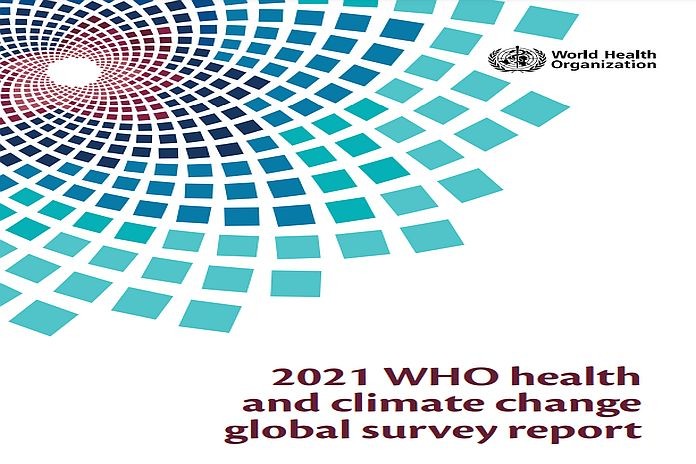GENEVA, Switzerland – Countries have begun to prioritize health in their efforts to protect people from the impact of climate change, but only about a quarter of those recently surveyed by the World Health Organization have been able to fully implement their national health and climate change plans or strategies. Countries report that a lack of funding; the impact of COVID-19; and insufficient human resource capacity are major barriers to progress.
The 2021 WHO health and climate change global survey report finds, however, that over three-quarters of surveyed countries have developed or are currently developing national health and climate change plans or strategies.
Some 85 percent of countries now have a designated focal point responsible for health and climate change in their ministries of health, while in 54 percent of countries, the ministry of health has established a stakeholder mechanism (such as a task force or committee) on health and climate change.
About two-thirds of surveyed countries have conducted a climate change and health vulnerability and adaptation assessment or are currently undertaking one, while virtually all (94%) countries incorporate health considerations in their nationally determined contributions (NDCs) to the Paris Agreement.
“The new WHO survey highlights how many countries are left unsupported and unprepared to deal with the health impacts of climate change. We are here at COP 26 to urge the world to better support countries in need, and to ensure that together we do a better job of protecting people from the biggest threat to human health we face today,” said Dr Maria Neira, WHO director of environment, climate change and health.
Countries’ inability to protect health from climate change is most harmful for their most disadvantaged groups, including ethnic minorities, poor communities, migrants and displaced people, older people and many women and children.
“The health arguments for increased climate action are very clear. For example, almost 80 percent of deaths caused by air pollution could be avoided if current air pollution levels were reduced to the WHO Air Quality guidelines,” said Dr Neira.
The WHO survey finds that insufficient finance continues to be the top stumbling block to fully implementing national health and climate change plans, cited by 70 percent of countries (up from 56% in 2019). Human resource constraints are the second biggest barrier, whilst about one third of countries identified a lack of intersectoral collaboration as a key barrier.
About half of the countries report that the COVID-19 emergency has slowed progress on addressing climate change by diverting health personnel and resources, and continues to threaten national health authorities’ abilities to plan and prepare for climate-related health stresses and shocks.
The report also notes a potential missed opportunity to identify and optimize the health benefits of adaptation and mitigation efforts in other sectors, which could have fed into a clean, healthy recovery from COVID-19: structural and social determinants of health, such as education, equity, gender, urban planning, housing, energy and transportation systems was represented in fewer than half of the established multisectoral mechanisms.
The first report in this series was released in 2019. This second report provides a valuable snapshot of the overall progress governments have made in addressing the health risks of climate change.
“The challenge now is to remove the barriers that are preventing countries from finalizing and implementing plans,” said Tara Neville, technical officer at the WHO department of environment, climate change and health and lead author of the survey report.
Related links:





